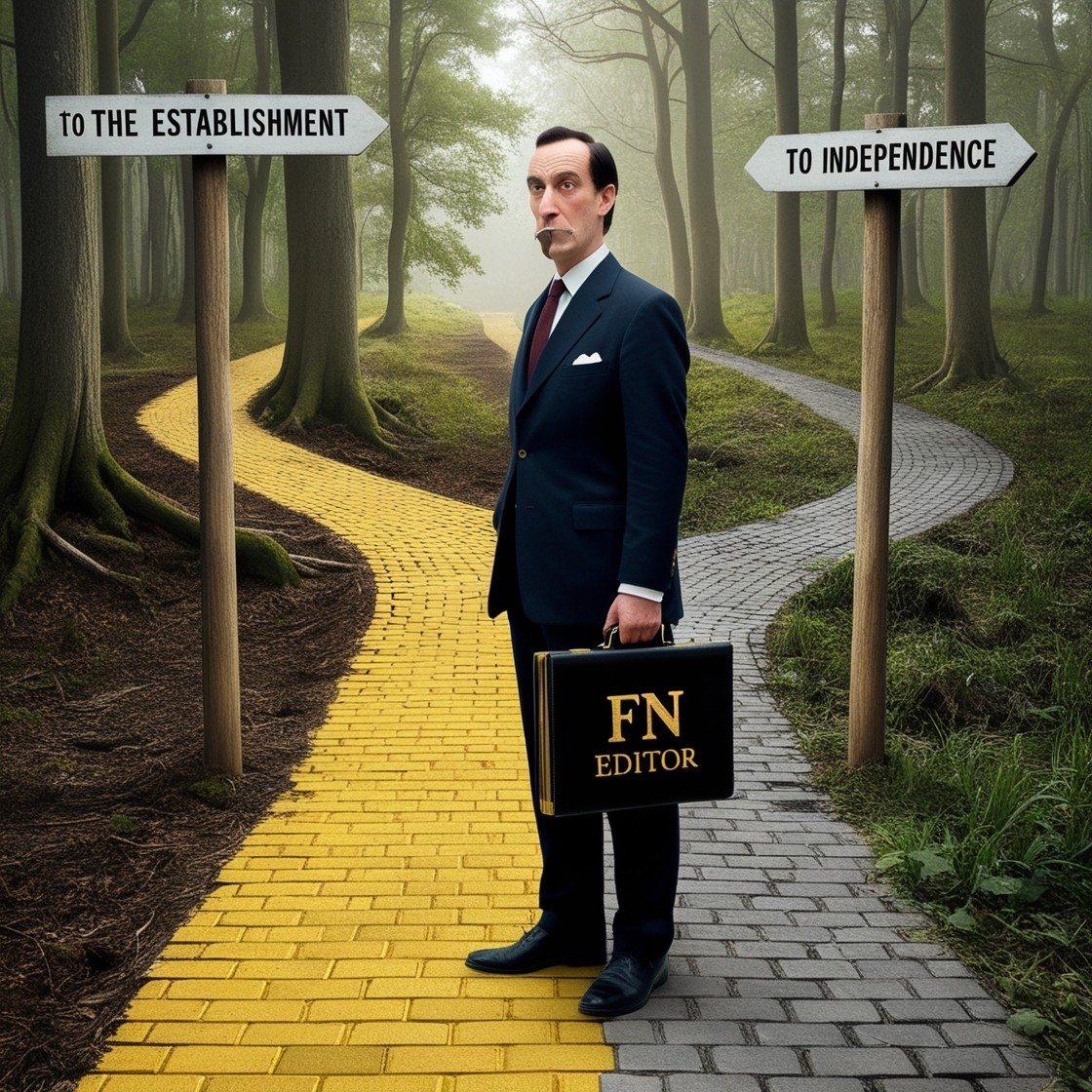
TA’s Foreword: Many FSB readers are Spexits, Spectator refuseniks who have parted company with the once august magazine because of its perceived drift to the Left and its new comment policy, obviously designed to inhibit debate. They may, therefore, be interested in Duke’s article, written in April 2008 in response to a piece written by the Speccie’s editor on the idea of issuing vouchers for education. Duke’s article is not really about the merits or demerits of the voucher system, but his opinion that the editor always following the Establishment line.
There’s not generally much worth reading in the Spectator, and what is, is never written by its editors, Matthew D’Ancona and Fraser Nelson, neither of whom could ever speak anything but the utterly acceptable, not if his life depended on it (“I go where the consensus goes . . . I know what the consensus knows”, Dobie Gray, 1965). They are true heirs of Addison and Steele.
Take Nelson (March 1st), intending to say something about education but saying nothing with conviction and illustrating only how words can be used to neuter one another. Where T. S. Eliot struggled against their tendency to slip, slide, perish, Fraser Nelson helps them on their way. He is enthusiastic about education vouchers as promising a “revolution”, but a revolution with nothing but upside, for everyone: “new”, “inspiring”, “radical”, “transforming”, “dramatic”, “setting free”. It’s by Marx out of Saatchi-&-Saatchi. What revolution could be more utterly-acceptable? Especially as it’s not so much a revolution in education—involving our understanding of it—as in “education performance”, outcomes to be measured and tallied (not to say fixed), like exam results. This is an education revolution according not to Rousseau but the Government Inspector, the Blue Books not Hard Times. The revolution moving forward to what it leaves behind. A revolution an ancien regime might welcome, made by salesmen.
What inspires it is the belief just that it is good to choose and spend. These revolutionaries are “selling a policy”; the target of their assault is the customers who might not buy it; their enemies all those unused to shopping. The revolution’s end is that “pupils choose schools, and not vice versa” and that “schools compete to educate children”; its means, vouchers. Voucher will set schools free, but nicely, acceptably, not free to choose their pupils—accepting some, rejecting others, as employers choose employees, sports-teams players or the wooed the wooer—but free to be chosen, like tins of beans. (The one kind of school you’re not going to be free to choose is one free not to choose you.). The revolution’s “main fruit” will be the “array of competing pedagogical styles” it will give us to choose from.
It’s a revolution in which everyone comes out on top. It won’t create “educational apartheid” or a “socially damaging segregation between the best and the worst schools”. Not only will all schools be better (“a rising tide lifts all boats”) but, henceforth, best and worst shall there be none. It is the best hope of “delivering true social justice in education” (which may, or may not, be the same as seeing that everyone gets his just deserts) and an “effective, flexible and dynamic means of promoting social mobility” (upwards, of course).
In Fraser-Nelsonspeak a “revolution” can be equally well a “strategy” or a “policy” and, as such, it can “address” equally well a tragedy or a “scandal”: this summer 25,000 children will drop out of school without a qualification, 240,000 will graduate from primary school without being able to read or write properly and youth unemployment will hit an 11-year high, all “tragically”, in one of the world’s highest-funded education systems.
There may be something wrong with education in this country but is this a way of saying so that helps you see what it is, let alone put it right?—a way in which you slip and slide from scandal to tragedy, from revolution to policy, from being able to read and write to having qualifications in reading and writing, from being educated to being employed; in which tragedy perishes as a thing to be addressed or found in expense that has nothing to show for it; a way of talking in which children graduate, from primary school? A way that shows your mind (what mind?) bewitched by the idea of buying and selling? Words just gummed together (goodness knows what with—spit?) and coming apart at the lightest touch. (And then there’s his idea of a “fundamental debate”: should schools “impart knowledge, or teach skills?”) Is it an educated way of talking? Can education be talked about like this at all?
NOTE: Nelson doesn’t read the magazine he edits. If he did, he’d have seen, eight pages on from his own article, a report of a debate in which Chris Woodhead, Martin Stephen (High Master of St Paul’s) and Norman Tebbit had things to say about education which differed from his own only in—as reported sympathetically by Lloyd Evans—displaying conviction and making sense.